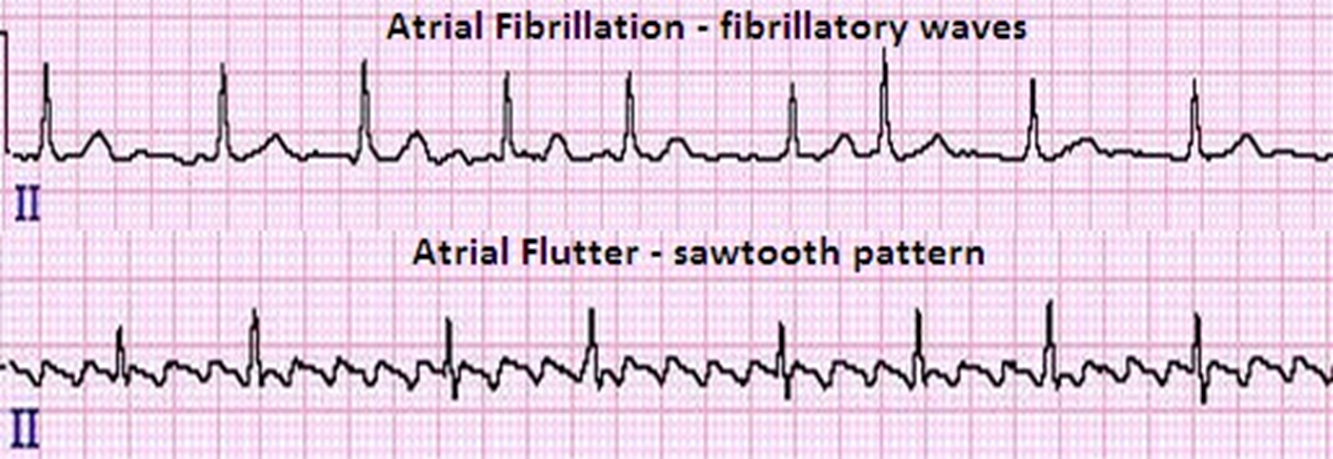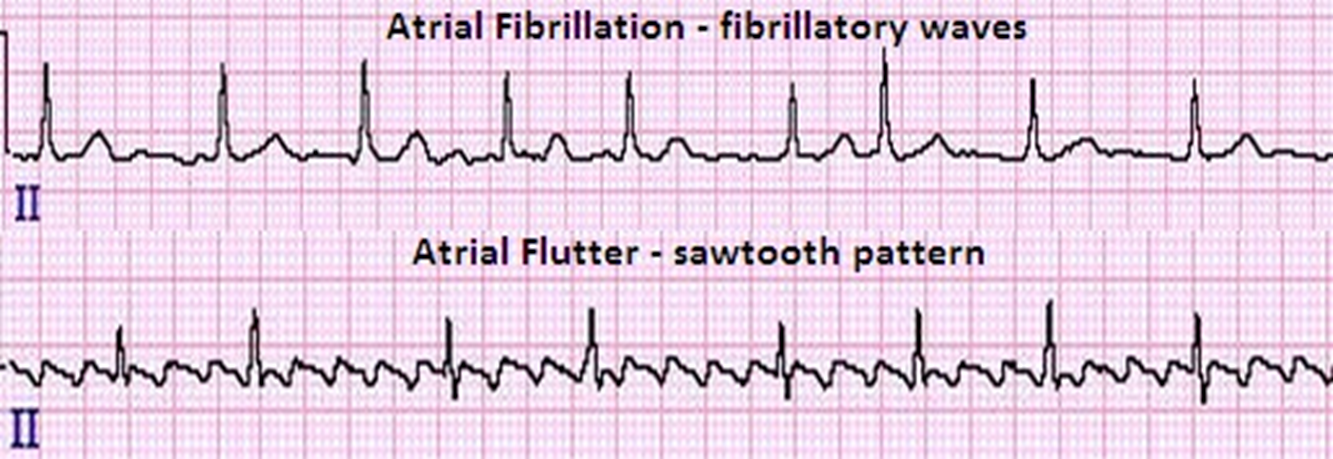The nurse is providing care for a patient with the following tracing on the electrocardiogram (ECG) for atrial fibrillation. What prescription should the nurse anticipate from the primary healthcare provider (PHCP)?

Adenosine
Diltiazem
Atropine
Captopril
The Correct Answer is B
Choice A rationale: Adenosine Adenosine is a naturally occurring substance that relaxes and dilates blood vessels. It also affects the electrical activity of the heart. Adenosine is used to help restore normal heartbeats in people with certain heart rhythm disorders. However, it is not typically used for atrial fibrillation.
Choice B rationale: Diltiazem Diltiazem belongs to a class of medications called calcium-channel blockers. It works by relaxing the blood vessels so the heart does not have to pump as hard. Diltiazem also increases the supply of blood and oxygen to the heart. It is used in adults alone or in combination with other medications to treat hypertension (high blood pressure) or symptoms of angina (chest pain). Diltiazem injection is used in adults to treat certain heart rhythm disorders such as atrial fibrillation.
Choice C rationale: Atropine Atropine is a tropane alkaloid and anticholinergic medication used to treat certain types of nerve agent and pesticide poisonings as well as some types of slow heart rate, and to decrease saliva production during surgery. However, it is not typically used for atrial fibrillation.
Choice D rationale: Captopril Captopril is used in adults alone or in combination with other medications to treat high blood pressure (hypertension) and congestive heart failure.
Captopril is also used to improve survival and reduce the risk of heart failure after a heart attack in patients with a heart condition called left ventricular hypertrophy (enlargement of the walls of the left side of the heart)4. However, it is not typically used for atrial fibrillation.

Nursing Test Bank
Naxlex Comprehensive Predictor Exams
Related Questions
Correct Answer is D
Explanation
Choice A rationale
Cramping of the toes is not typically associated with a positive Homans sign. Homans sign is a test used to check for deep vein thrombosis (DVT), a blood clot in a deep vein of the leg. While cramping can occur with DVT, it is not specific to this condition and can occur with many other conditions.
Choice B rationale
Blanching of the sole is not associated with a positive Homans sign. Blanching, or whitening of the skin, can occur with various conditions, but it is not a typical sign of DVT45.
Choice C rationale
Resisting dorsiflexion is not a typical response indicating a positive Homans sign. While pain or resistance during dorsiflexion of the foot can occur with various conditions, it is not a specific sign of DVT45.
Choice D rationale
Pain in the calf area during dorsiflexion of the foot (Homans sign) can indicate a positive sign for DVT. However, it’s important to note that Homans sign is not a reliable or definitive test for DVT. Other diagnostic tests, such as ultrasound, are needed to confirm the diagnosis.
Correct Answer is A
Explanation
Choice A rationale
Keeping hands warm and wearing gloves when handling cold objects is one of the most effective ways to manage Raynaud’s disease. Cold temperatures can trigger Raynaud’s attacks, which can cause the fingers to turn white, then blue, and feel cold and numb.
Choice B rationale
While avoiding standing for prolonged periods can be beneficial for certain conditions, it is not specifically related to managing Raynaud’s disease.
Choice C rationale
Regular exercise can help improve circulation, which can be beneficial for people with Raynaud’s disease. However, it’s not as crucial as keeping the hands warm.
Choice D rationale
Regularly returning to the clinic for blood pressure checks is not specifically related to managing Raynaud’s disease. While it’s important for individuals with certain conditions, such as hypertension, to regularly monitor their blood pressure, it’s not a key aspect of managing Raynaud’s disease.
Whether you are a student looking to ace your exams or a practicing nurse seeking to enhance your expertise , our nursing education contents will empower you with the confidence and competence to make a difference in the lives of patients and become a respected leader in the healthcare field.
Visit Naxlex, invest in your future and unlock endless possibilities with our unparalleled nursing education contents today
Report Wrong Answer on the Current Question
Do you disagree with the answer? If yes, what is your expected answer? Explain.
Kindly be descriptive with the issue you are facing.
